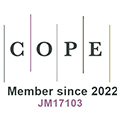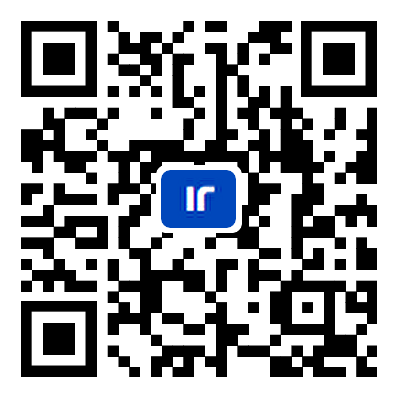REFERENCES
1. Vinyals O, Babuschkin I, Czarnecki WM, et al. Grandmaster level in starcraft Ⅱ using multi-agent reinforcement learning. Nature 2019;575:350-4.
2. Thunberg J, Goncalves J, Hu X. Consensus and formation control on SE(3) for switching topologies. Automatica 2016;66:109-21.
3. Botts CH, Spall JC, Newman AJ. Multi-agent surveillance and tracking using cyclic stochastic gradient. In: Proceedings of the American Control Conference. Boston, MA, USA; 2016. p. 270-5.
4. Ren W, Beard RW, Atkins EM. A survey of consensus problems in multi-agent coordination. In: Proceedings of the American Control Conferenc. Portland, OR, USA. IEEE; 2005. p. 1859-64.
5. Heylighen F. The science of self-organization and adaptivity. In: Kiel LD, Elliott EW, editors. Complexity and the human sciences. Routledge; 2001. p. 57-85. Available from: https://www.eolss.net/sample-chapters/c15/E1-29-01-05.pdf. [Last accessed on 6 Nov 2023].
6. Yang D, Ren W, Liu X, Chen W. Decentralized event-triggered consensus for linear multi-agent systems under general directed graphs. Automatica 2016;69:242-9.
7. Ren W, Atkins E. Second-order consensus protocols in multiple vehicle systems with local interactions. In: Proceedings of the AIAA Guidance, Navigation, and Control Conference. San Francisco, California. AIAA; 2005. p. 1-14.
8. Huang N, Duan Z, Zhao Y. Consensus of multi‐agent systems via delayed and intermittent communications. IET Control Theory Appl 2015;9:1-8.
9. Zhao X, Shi P, Zheng X, Zhang J. Intelligent tracking control for a class of uncertain high-order nonlinear systems. IEEE Trans Neural Netw Learn Syst 2016;27:1976-82.
10. Huang S, Liao F, Teo RSH. Fault tolerant control of quadrotor based on sensor fault diagnosis and recovery information. Machines 2022;10:1088.
11. Tsai YH, Chang FR, Yang WC. GPS fault detection and exclusion using moving average filters. IEE Proc Radar Sonar Navig 2004;151:240-7.
12. Olfati-saber R, Murray R. Consensus problems in networks of agents with switching topology and time-delays. IEEE Trans Automat Contr 2004;49:1520-33.
13. Xiao F, Wang L. State consensus for multi-agent systems with switching topologies and time-varying delays. Int J Control 2006;79:1277-84.
16. Yan B, Wu C, Shi P. Formation consensus for discrete-time heterogeneous multi-agent systems with link failures and actuator/sensor faults. J Franklin I 2019;356:6547-70.
17. Chen C, Lewis FL, Xie S, et al. Resilient adaptive and
18. Xiong S, Hou Z. Data-driven formation control for unknown MIMO nonlinear discrete-time multi-agent systems with sensor fault. IEEE Trans Neural Netw Learn Syst 2022;33:7728-42.
19. Lee D, Spong MW. Stable flocking of multiple inertial agents on balanced graphs. IEEE Trans Autom Control 2007;52:1469-75.
20. Li W, Spong MW. Stability of general coupled inertial agents. IEEE Trans Autom Control 2010;55:1411-6.
21. Zheng Y, Zhu Y, Wang L. Consensus of heterogeneous multi-agent systems. IET Control Theory A 2011;5:1881-8.
22. Mu B, Shi Y. Distributed LQR consensus control for heterogeneous multiagent systems: theory and experiments. IEEE/ASME Trans Mechatron 2018;23:434-43.
23. Ma Q, Miao G. Output consensus for heterogeneous multi-agent systems with linear dynamics. Appl Math Comput 2015;271:548-55.
24. Du H, Wen G, Wu D, Cheng Y, Lü J. Distributed fixed-time consensus for nonlinear heterogeneous multi-agent systems. Automatica 2020;113:108797.
25. Li X, Yu Z, Li Z, Wu N. Group consensus via pinning control for a class of heterogeneous multi-agent systems with input constraints. Inf Sci 2021;542:247-62.
26. Dorf RC, Farren M, Phillips C. Adaptive sampling frequency for sampled-data control systems. IRE Trans Automat Contr 1962;7:38-47.
27. Fan Y, Feng G, Wang Y, et al. Distributed event-triggered control of multi-agent systems with combinational measurements. Automatica 2013;49:671-5.
28. Kim H, Shim H, Seo JH. Output consensus of heterogeneous uncertain linear multi-agent systems. IEEE Trans Automat Contr 2011;56:200-6.
29. Peng C, Han Q. On designing a novel self-triggered sampling scheme for networked control systems with data losses and communication delays. IEEE Trans Ind Electron 2016;63:1239-48.
30. Antonio VTJ, Adrien G, Manuel A, et al. Event-triggered leader-following formation control for multi-agent systems under communication faults: application to a fleet of unmanned aerial vehicles. J Syst Eng Electron 2021;32:1014-22.
31. Tasooji TK, Khodadadi S, Marquez HJ. Event-based secure consensus control for multirobot systems with cooperative localization against DoS attacks. IEEE/ASME Trans Mechatron 2023:1-15.









